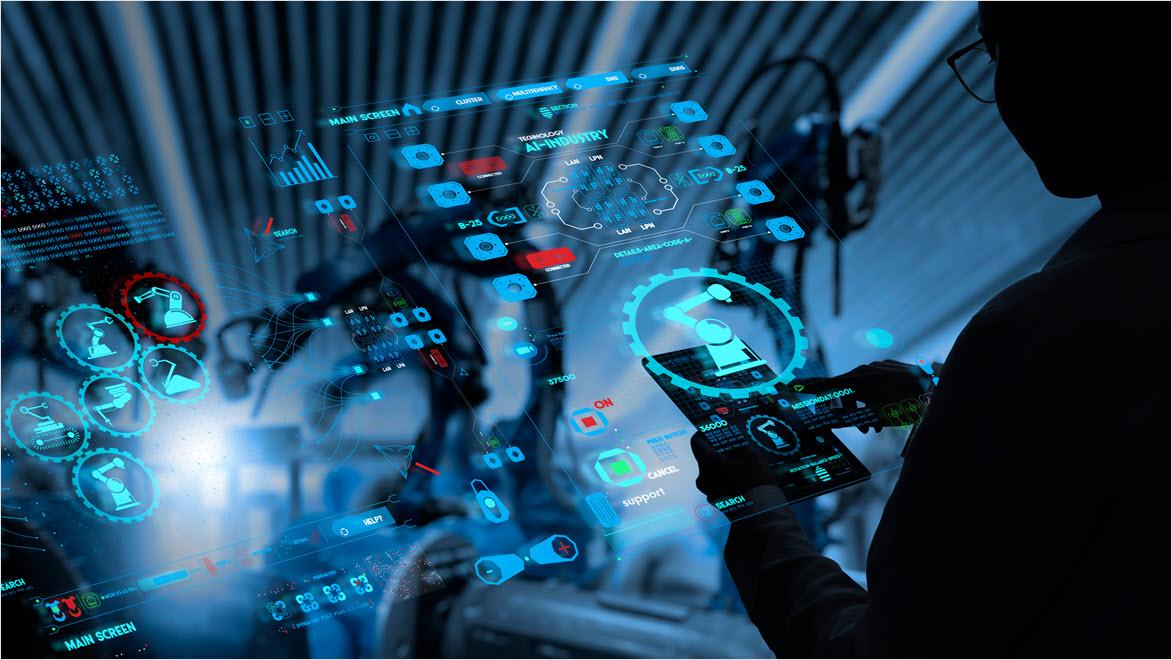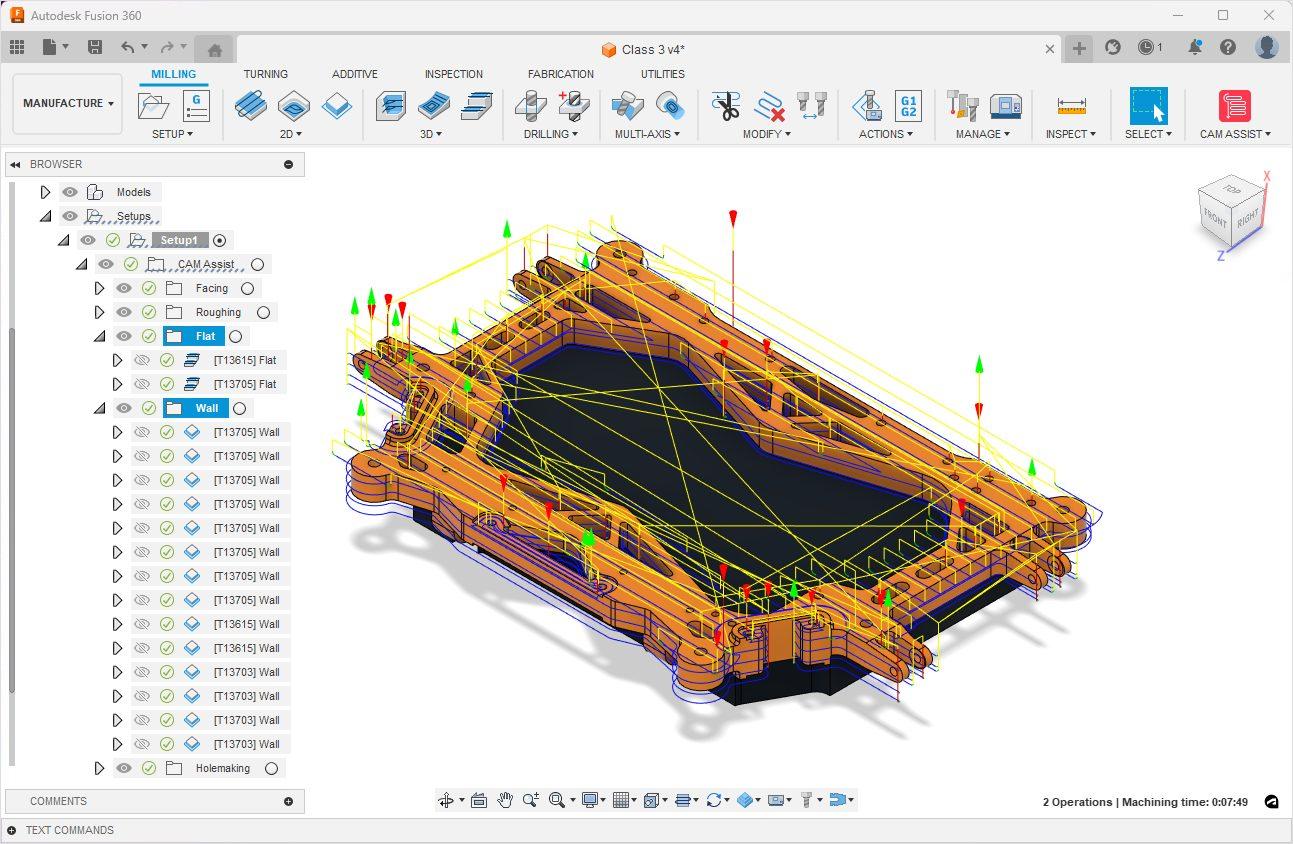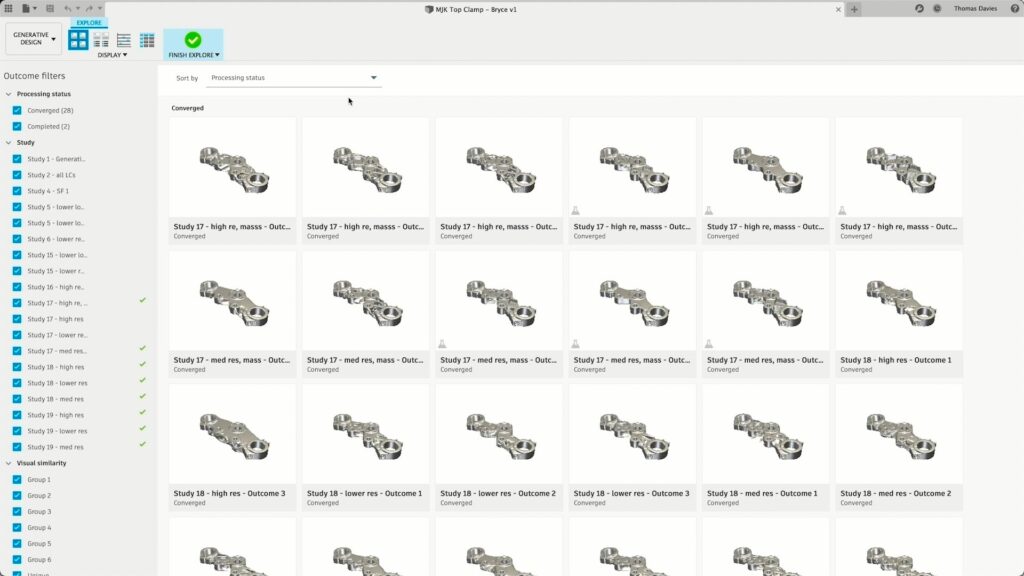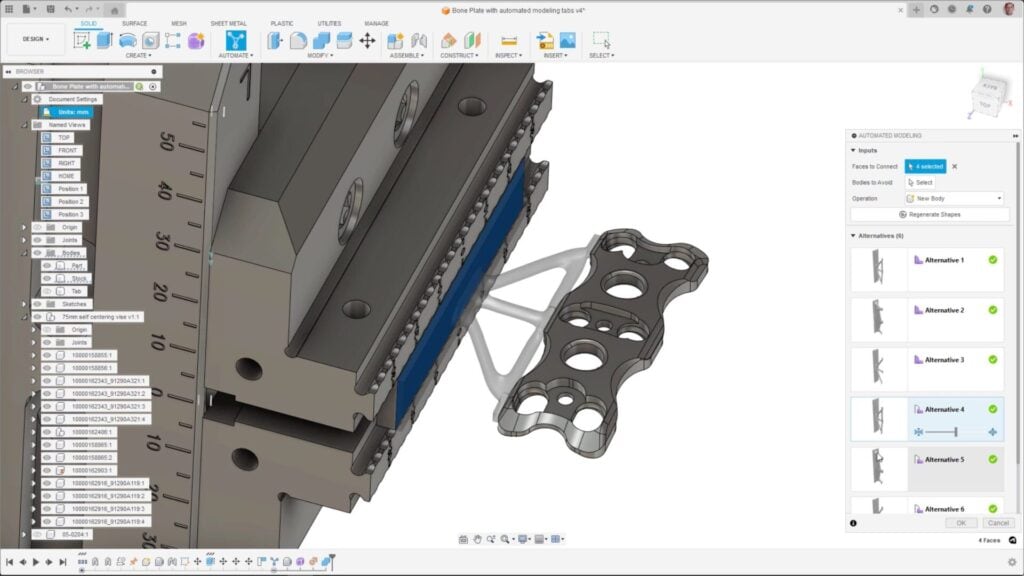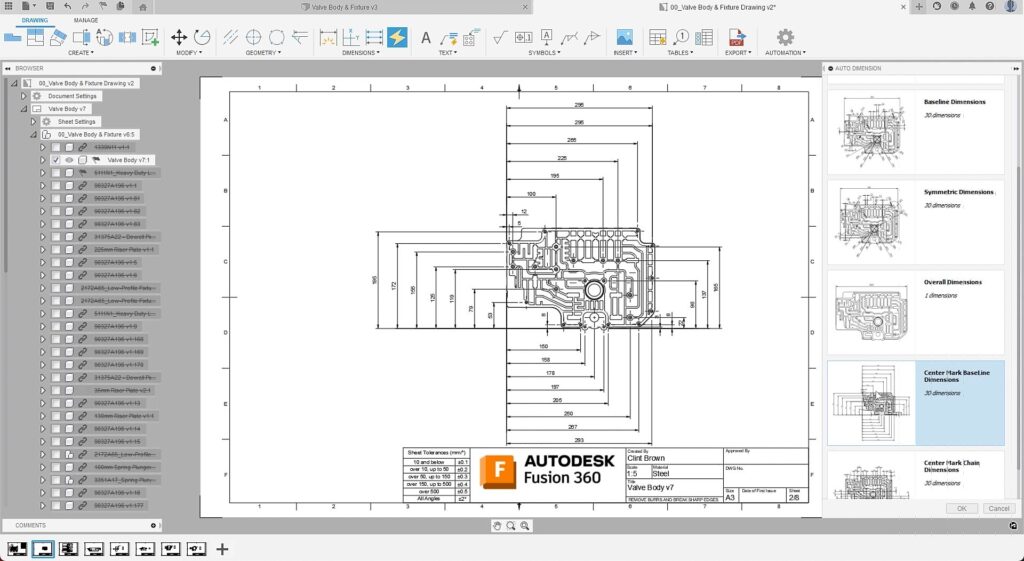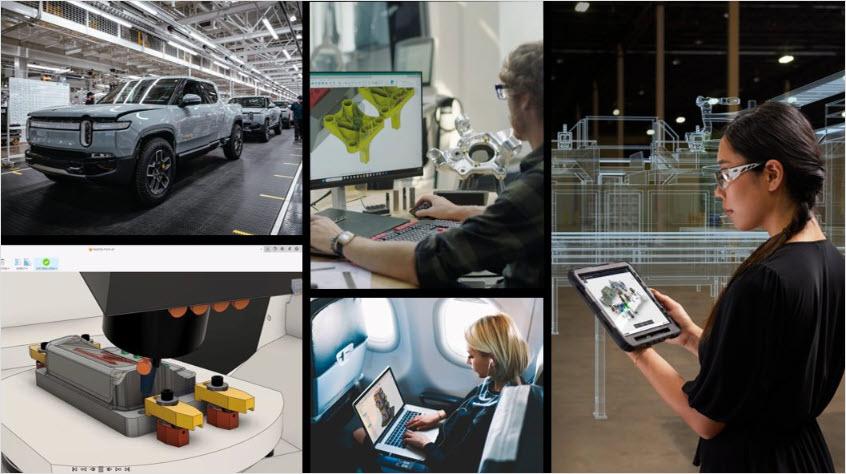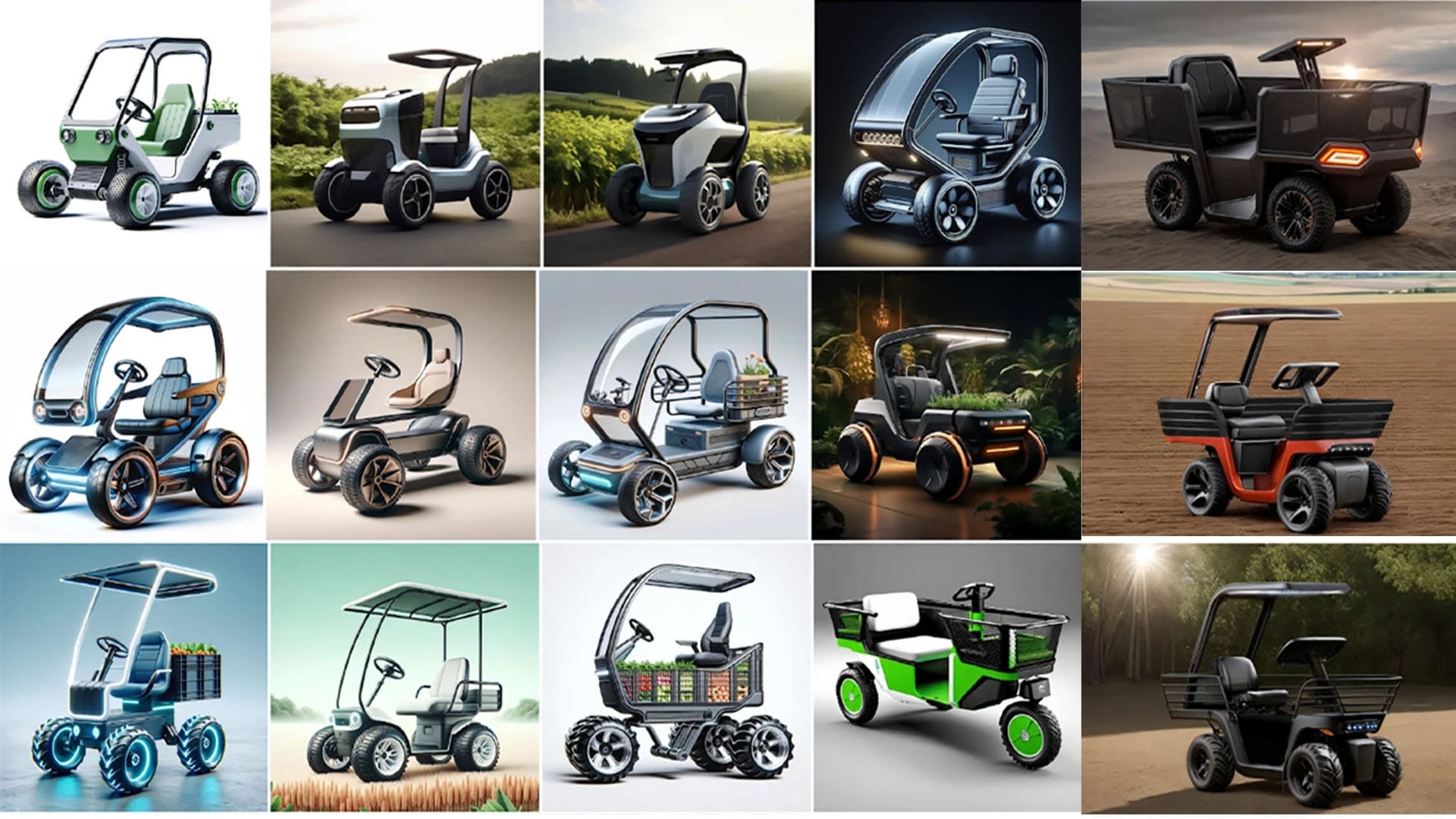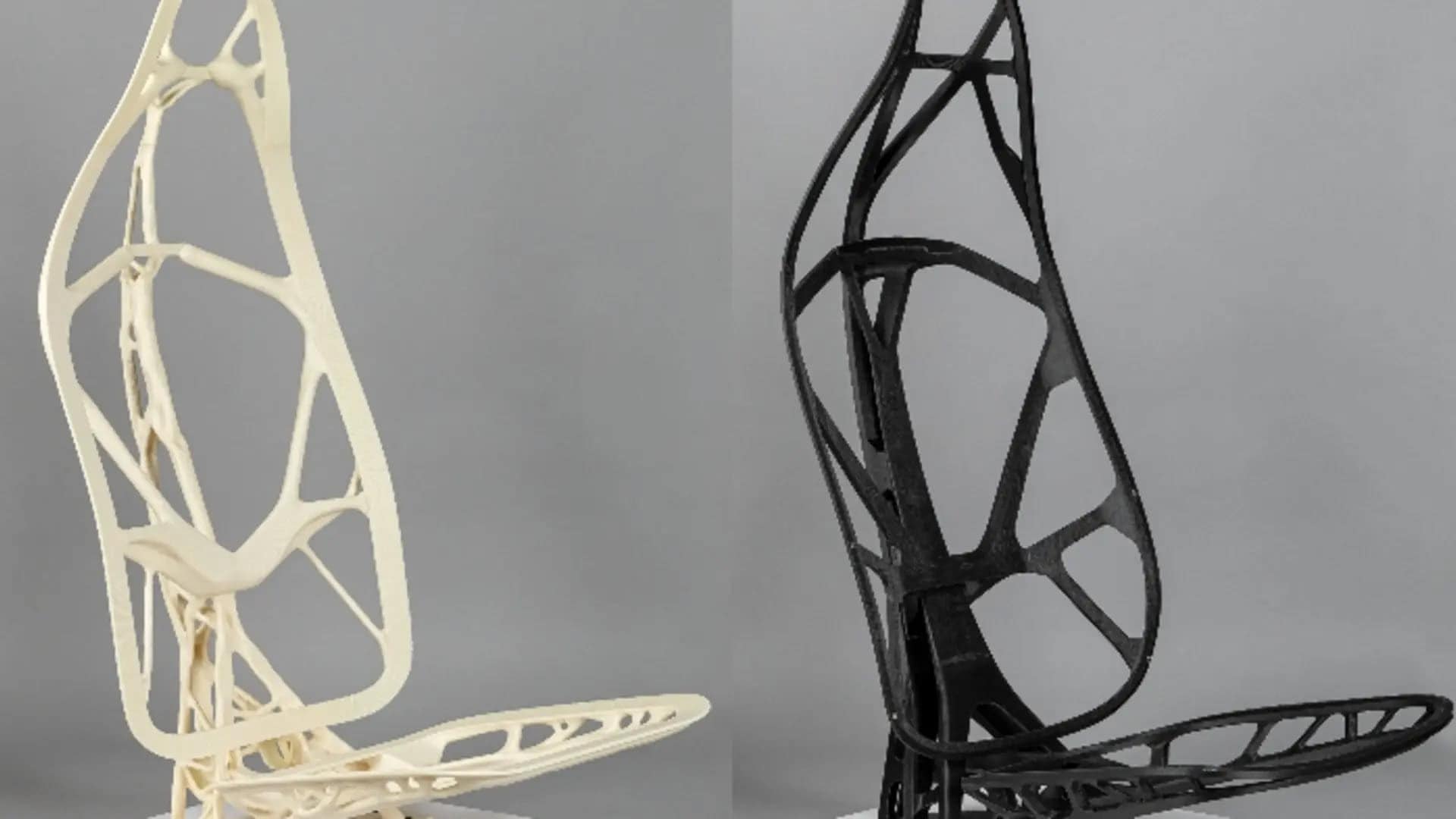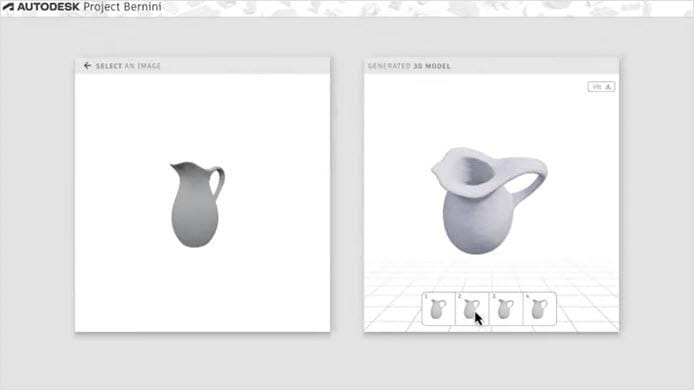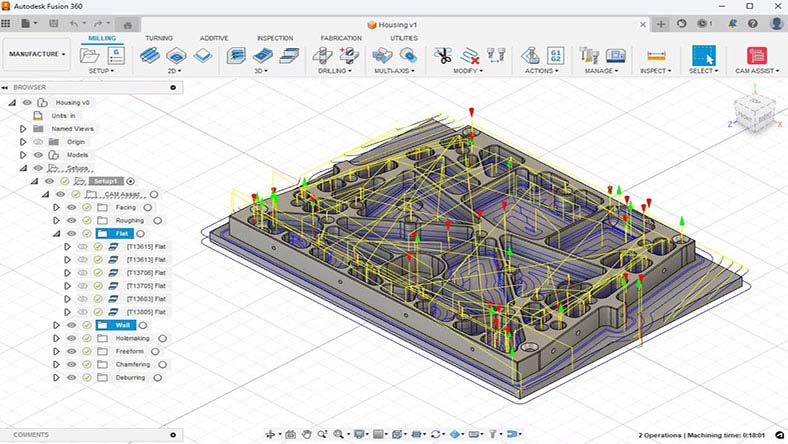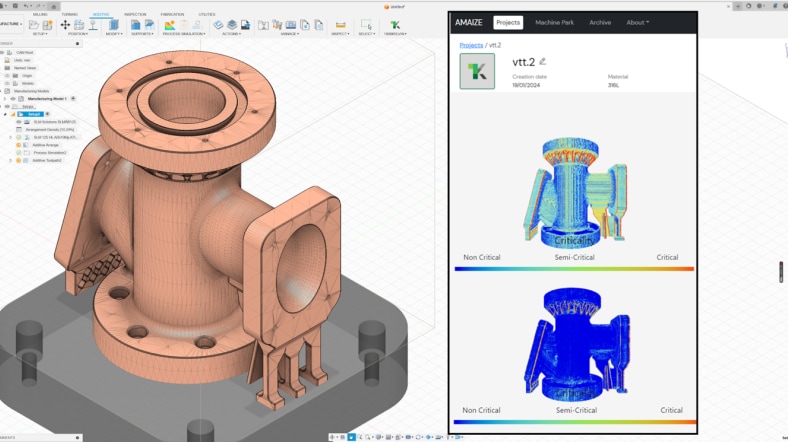& Construction

Integrated BIM tools, including Revit, AutoCAD, and Civil 3D
& Manufacturing

Professional CAD/CAM tools built on Inventor and AutoCAD
Artificial intelligence plays a pivotal role in the digtial transformation of manufacturing by automating, augmenting and analysing aspects of the production process. AI in manufacturing enhances efficiency, improves product quality and maintains competitiveness. For example, AI can automate Computer-Aided Manufacturing (CAM) tasks, reducing errors and speeding up production times. AI can also be employed in the automotive industry by automating aspects such as optimising a vehicle's aerodynamics and structural integrity while maintaining aesthetic and functional requirements. AI eliminates tedious tasks that consume substantial human effort and time.
AI frees up engineers and designers to concentrate on innovation, accelerating the launch of new products. It streamlines operations and offers deeper insights into production processes. By adopting AI, manufacturers can digitally transform their operations, enhancing their ability to predict future trends and adapt to evolving market demands, thus securing a significant competitive edge.
AI can streamline manufacturing processes by automating repetitive tasks, reducing human error and decreasing production time.
By improving efficiency, reducing waste and minimising downtime, AI can significantly reduce operational costs in manufacturing.
AI in manufacturing can improve product quality by using machine vision to detect known issues and inconsistencies in real time during the manufacturing process.
AI in manufacturing can be used to address sustainability concerns, mitigate supply chain disruptions and optimise resource use. This improves the overall production process and customer experience.
For over ten years, Autodesk has prioritised investment in AI because we recognise its transformative power for design and manufacturing teams. Autodesk AI is technology that augments creative exploration and problem-solving, automates tedious and repetitive tasks and analyses project data to offer predictive insights.
It increases productivity by providing tools to be more ambitious and creative, primarily focusing on analysis, augmentation and automation.
Generate manufacturing-ready design alternatives with your requirements, constraints, materials and manufacturing options using generative design.
Enable rapid design exploration early on and uncover new possibilities in how you approach a given design problem in minutes using automated modeling (US Site).
Automate repetitive CAM programming tasks with strategies and estimations, which might have once taken hours or days to develop, instantaneously with toolpath automation (US Site).
Streamline time-consuming tasks by leveraging AI-powered automation in Fusion for drawing standards, dimensioning and sheet layout, enhancing design efficiency with automated drawings (US Site).
The Autodesk Fusion industry cloud represents a new era of connected data and collaboration to design and make anything.
Optimise part design and performance with unlimited cloud solves for generative design, FEA, electronic cooling, injection moulding and more.
See how generative AI expanded the design possibilities for a unique Yamaha EV prototype rugged enough to tackle mountainous, agricultural terrain.
Image courtesty of Yamaha EV
For the future of comfortable car interiors, Toyota uses generative design to create a seat frame that is safe, lightweight, beautiful and sustainable.
Image courtesy of Toytota
A leading manufacturer of industrial X-ray systems is evolving its business model with cloud technology.
Image courtesy of Chris Mueller
Explore the transformative impact of AI and machine learning in manufacturing, including advancements in predictive maintenance, quality control and design optimisation.
Learn how AI improves product quality and efficiency through data analysis, design optimisation, supply chain management and process automation.
Explore three ways AI already impacts the design, engineering and manufacturing fields, from generative design to advanced robotics.
Project Bernini, an Autodesk generative AI project, quickly generates multiple geometrically realistic 3D objects to accelerate every stage of creative design.
Project salvador add-in
Chain third party AI models together with Fusion to create seamless workflows between the tools.
CLoud nc CAM assist automation add-in
Use advanced computer science techniques to generate professional machining strategies for 3-axis parts in seconds.
amaize add-in (coming soon)
Predict, resolve print issues and optimise print files, pushing the AM industry towards a more scalable future.
AI can be used in product development, predictive maintenance, quality control and more. It can also be used to create digital twins of physical entities for testing and improvement.
AI can improve speed, precision and quality control in manufacturing. It can also lead to the creation of fully autonomous factories run by AI systems directing robotic production lines.
AI can be used for predictive maintenance, machine-generated events monitoring and more. It can also help increase revenue, reduce conversion costs and improve customer service and quality.
Yes, AI can identify and rectify possible product failures before they happen.
Yes, Autodesk Fusion is an integrated CAD (Computer-Aided Design), CAM (Computer-Aided Manufacturing) and CAE (Computer-Aided Engineering) software that leverages artificial intelligence and machine learning in several ways, making it a part of the broader AI in manufacturing solutions. Some of its AI capabilities include:
Generative Design: Autodesk Fusion's generative design capabilities use AI to generate multiple design solutions based on the constraints and goals set by the user. This allows for the exploration of a wide variety of design alternatives in less time, helping engineers and designers to make more informed decisions.
Predictive Analytics: Autodesk Fusion can use machine learning to predict potential issues in the design and manufacturing processes, helping users to prevent problems before they occur.
Automation: Autodesk Fusion uses AI to automate repetitive tasks, reducing the time spent on these tasks and allowing the user to focus on more complex aspects of the design and manufacturing process.
